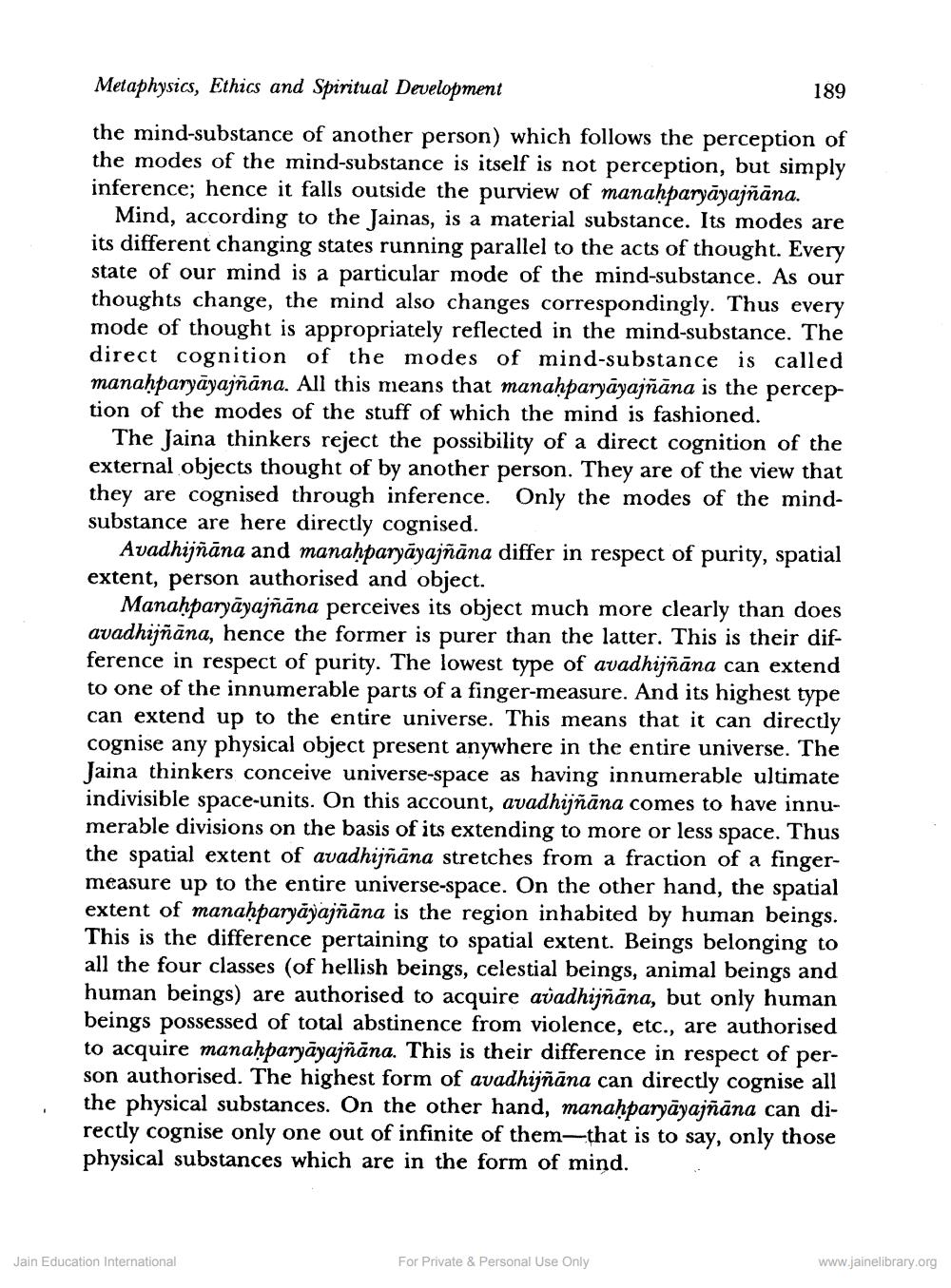________________
Metaphysics, Ethics and Spiritual Development
189
the mind-substance of another person) which follows the perception of the modes of the mind-substance is itself is not perception, but simply inference; hence it falls outside the purview of manaḥparyāyajñāna.
Mind, according to the Jainas, is a material substance. Its modes are its different changing states running parallel to the acts of thought. Every state of our mind is a particular mode of the mind-substance. As our thoughts change, the mind also changes correspondingly. Thus every mode of thought is appropriately reflected in the mind-substance. The
ct cognition of the modes of mind-substance is called manahparyāyajñāna. All this means that manahparyāyajñāna is the perception of the modes of the stuff of which the mind is fashioned.
The Jaina thinkers reject the possibility of a direct cognition of the external objects thought of by another person. They are of the view that they are cognised through inference. Only the modes of the mindsubstance are here directly cognised.
Avadhijñāna and manahparyāyajñāna differ in respect of purity, spatial extent, person authorised and object.
Manahparyāyajñāna perceives its object much more clearly than does avadhijñāna, hence the former is purer than the latter. This is their difference in respect of purity. The lowest type of avadhijñāna can extend to one of the innumerable parts of a finger-measure. And its highest type can extend up to the entire universe. This means that it can directly cognise any physical object present anywhere in the entire universe. The Jaina thinkers conceive universe-space as having innumerable ultimate indivisible space-units. On this account, avadhijñāna comes to have innumerable divisions on the basis of its extending to more or less space. Thus the spatial extent of avadhijnana stretches from a fraction of a fingermeasure up to the entire universe-space. On the other hand, the spatial extent of manahparyājajñāna is the region inhabited by human beings. This is the difference pertaining to spatial extent. Beings belonging to all the four classes (of hellish beings, celestial beings, animal beings and human beings) are authorised to acquire avadhijñāna, but only human beings possessed of total abstinence from violence, etc., are authorised to acquire manaḥparyāyajñāna. This is their difference in respect of person authorised. The highest form of avadhijñāna can directly cognise all the physical substances. On the other hand, manahparyāyajñāna can directly cognise only one out of infinite of them-that is to say, only those physical substances which are in the form of mind.
Jain Education International
For Private & Personal Use Only
www.jainelibrary.org




